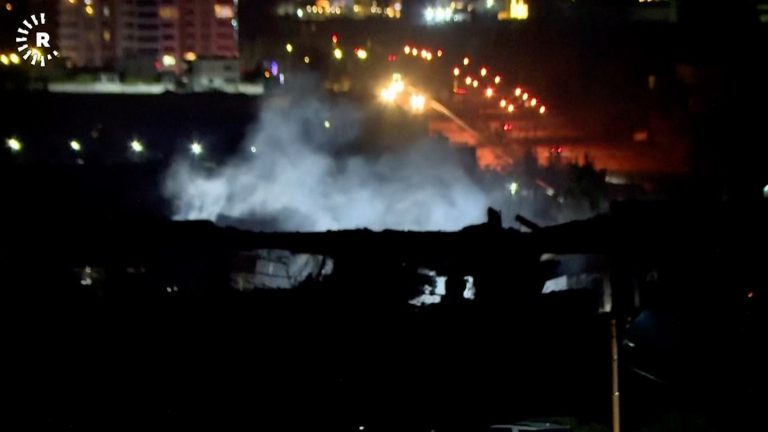The Iranian Revolutionary Guard said that the “espionage headquarters” of the Israeli intelligence agency Mossad was used to plan “terrorist” acts against Iran, according to a statement issued through its media arm early Tuesday local time. Kurdish officials deny these allegations. The Israeli Prime Minister's press office did not immediately respond to a request for comment.
The Kurdish Regional Security Council said in a statement that Iranian forces “always use baseless excuses to attack Erbil,” adding that the capital of the Iraqi Kurdistan region “is a stable region and has never posed a threat to any party.”
The council said: “This is a blatant violation of the sovereignty of the Kurdistan Region and Iraq, and the federal government and the international community must not remain silent regarding this crime.”
The Iraqi Foreign Ministry said in a statement on Tuesday that Iraq recalled its ambassador from Tehran after the strikes. The ministry also said Iran's top diplomat in Baghdad was summoned due to the attack and was handed a “protest note.”
Hemin Hawrami, Vice President of the Kurdistan Regional Parliament, said that the dead were an Iraqi businessman and his family. Condemning the attack, Masrour Barzani, Prime Minister of the Kurdistan Region, said on social media that he would work with international allies over the next few days to “stop these brutal attacks.”
The attack occurred in an area on the outskirts of the city of Erbil, near the US Consulate building under construction. There is a functioning US consulate within the city.
The Iranian missile attack comes on the heels of a series of escalatory attacks in recent weeks. Iran has vowed to avenge the killing of a senior Revolutionary Guard officer in Syria last month. And also in December, The United States carried out air strikes on Iraqi territory targeting Iranian-backed armed groups linked to attacks on US forces.
The US also struck another group with ties to Iran – Houthi militants in Yemen – which the White House said was in retaliation for their attacks against commercial ships in the Red Sea. Iranian Foreign Minister Hossein Amir Abdollahian warned the United States and its allies on Monday against the consequences of targeting Yemen.
Iranian state media reported that the Iranian Revolutionary Guard also said on Tuesday that it had fired missiles at ISIS fighters in Syria. This strike comes after a bomb attack in the Iranian city of Kerman, for which the Islamic State claimed responsibility, which killed 95 people this month.
A spokeswoman for the White House National Security Council said that no American personnel or facilities were targeted or damaged in Iraq or Syria. Adrian Watson He said. State Department spokesman Matthew Miller said that the United States “strongly condemns the Iranian attacks in Erbil today and extends its condolences to the families of those killed.”
Miller said in a statement: “We oppose Iran’s reckless missile strikes, which undermine the stability of Iraq.”
Tensions have risen in the Middle East since Hamas's attack on Israel in October and the ensuing war in Gaza, with Iran's network of allied militant groups demonstrating Iran's power by proxy. US forces in Iraq and Syria have faced at least 131 attacks by Iranian-backed armed groups since October 17, according to Pentagon data. But the missile strikes early Tuesday are one of the rare cases in which the IRGC has been directly credited for an attack since October 7.
In a separate incident on Tuesday, Kurdistan's counter-terrorism forces said they shot down three “bomb-laden drones” that were trying to target a US military base near Erbil International Airport, an area that has been repeatedly attacked by Iranian-backed Shiite militants. No group immediately claimed responsibility for the failed attack.
Salem reported from Baghdad, Melnyk from Washington, and Masih reported from Seoul. Alex Horton in Washington contributed to this report.

